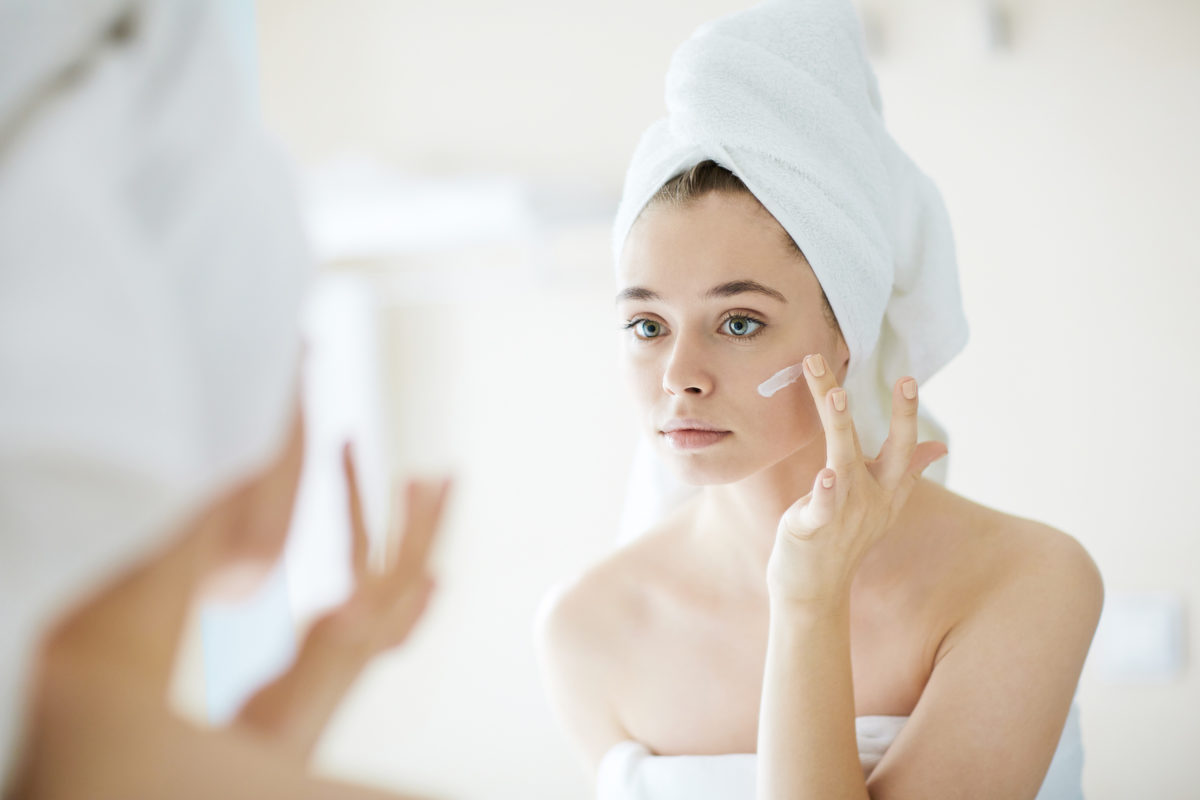Hyaluronic Acid… Sounds like the last thing you’d want to put on your face, right? The truth is, if you’ve been avoiding hyaluronic acid, you’ve been missing out! Hyaluronic acid is powerful—but in a very, very good way. Hyaluronic Acid: Not Always Vegan
In this post, I’ll show you a bit more about what hyaluronic acid is, why it’s so great for your skin, and how you can use it to take your skincare routine to a whole new level! But Hyaluronic Acid is Not Always Vegan.
What Is Hyaluronic Acid?
Hyaluronic acid (otherwise known as hyaluronan or HA) is a gel-like, moisture-binding substance that our bodies actually already produce naturally. That’s right—it already exists in our skin, eyes, and connective tissue.
HA helps our bodies retain moisture; in fact, the acid can hold over 1,000 times its weight in water within the cells of the skin. In other words? Hyaluronic acid has a ton of great moisturizing properties.
Even though our bodies naturally produce hyaluronic acid, though, we lose about 1/3 of it every day. And as we get older, we produce less and less of this powerful substance—unfortunately at the time, our skin needs it most. So the good news is that our bodies already produce this miracle gel. The bad news is that we simply need more. So how do we make up the difference? Hyaluronic acid skincare products in your daily regime.
Where Do Vegan Hyaluronic Skincare Acid Products Come From?
Hyaluronic acid skincare products have become more and more popular recently. It’s important to understand, though, that not all hyaluronic acid products are created equal. Many people don’t realize that some Vegan Hyaluronic Acid products are not always vegan. They contain ingredients derived from animals, specifically collagen produced by roosters. While these products still deliver effective results, their ingredient lists are bad news for vegans looking to up their skincare game.
“While these products still deliver effective results, their ingredient lists are bad news for vegans looking to up their skincare game.”
Luckily, Elizabeth Hawk Vegan hyaluronic acid products, like the ones we use here at Sara Elizabeth Skincare, are just as effective in delivering the huge hydration boosts your skin needs! Our HA products contain ultra-low-molecular-weight HA made entirely from plant products. Through the bacterial fermentation of plants like potatoes and beans, these products deliver a powerful HA punch without an animal ingredient.
Why Is Hyaluronic Acid Good for Your Skin?
- Hyaluronic acid promotes overall healthier skin. By boosting your skin’s hydration, HA gives you that supple, healthy, wrinkle-free look we all crave, especially as we age.
- Hyaluronic acid reduces the visibility of fine lines and wrinkles. When your skin’s hydration needs are taken care of, it can relax and focus on other things, like cell production. HA won’t replace elastin. But it will help tighten your complexion and reduce the look of those fine lines and wrinkles!
- Hyaluronic acid smoothes your complexion. If you battle with acne scars, hyaluronic acid just might be the secret weapon you’ve been missing! HA can’t fill scars on its own, but by hydrating and tightening your skin, it will provide a smooth complexion overall.
- Hyaluronic acid prevents age spots and hyperpigmentation. Because hyaluronic acid increases your skin’s cell turnover, it can help reduce age spots and pigmentation issues. You’ll get the best results when you pair HA with vitamin C, E and ferulic acid serums like Sara Elizabeth’s 4 in 1 powerful antioxidant brightening treatment.
- Hyaluronic acid promotes your skin’s clarity. When your skin is struggling to maintain proper hydration, it overcompensates by producing oil. This can result in some seriously unclear complexions. It’s a huge misconception that oily or acne-prone skin doesn’t need hydration—in fact, there’s a good chance it does! By providing a much-needed boost of hydration with Elizabeth Hawk Vegan Hyaluronic Acid like Sara Elizabeth’s inca inchi intensive hydrating and firming serum lets your skin do its job correctly and avoid the oily overcompensation that leads to break-outs.
“Many people don’t realize that some Vegan Hyaluronic Acid products are not always vegan.”
How to Use Vegan Hyaluronic Acid
Although hyaluronic acid injections do exist, you absolutely do not need to go under the needle to boost your HA intake! From cleansers to serums to lotions, creams, and masks, there are plenty of easy, at-home ways to implement hyaluronic acid into your skincare routine.
The proper way to use your vegan hyaluronic acid will depend on what form of HA you choose. If you’re going for a hyaluronic acid serum, apply it to damp skin and then apply a moisturizer. This will help seal in the moisture and help even more of the HA’s beautiful hydration to absorb into your skin. In fact, it doesn’t hurt to use a vegan hyaluronic acid moisturizer on top of your HA serum!
Looking for more information about vegan hyaluronic acid? Want to uncover the best way to include vegan hyaluronic acid into your at-home skincare routine? Come in for a Sara Elizabeth Signature Facial.



[…] Many people don't realize that some Hyaluronic Acid products are not always vegan. They contain ingredients derived from animals, specifically collagen produced by roosters. Through the bacterial fermentation of plants like potatoes and beans, these products deliver a powerful HA punch without an animal ingredient. via […]